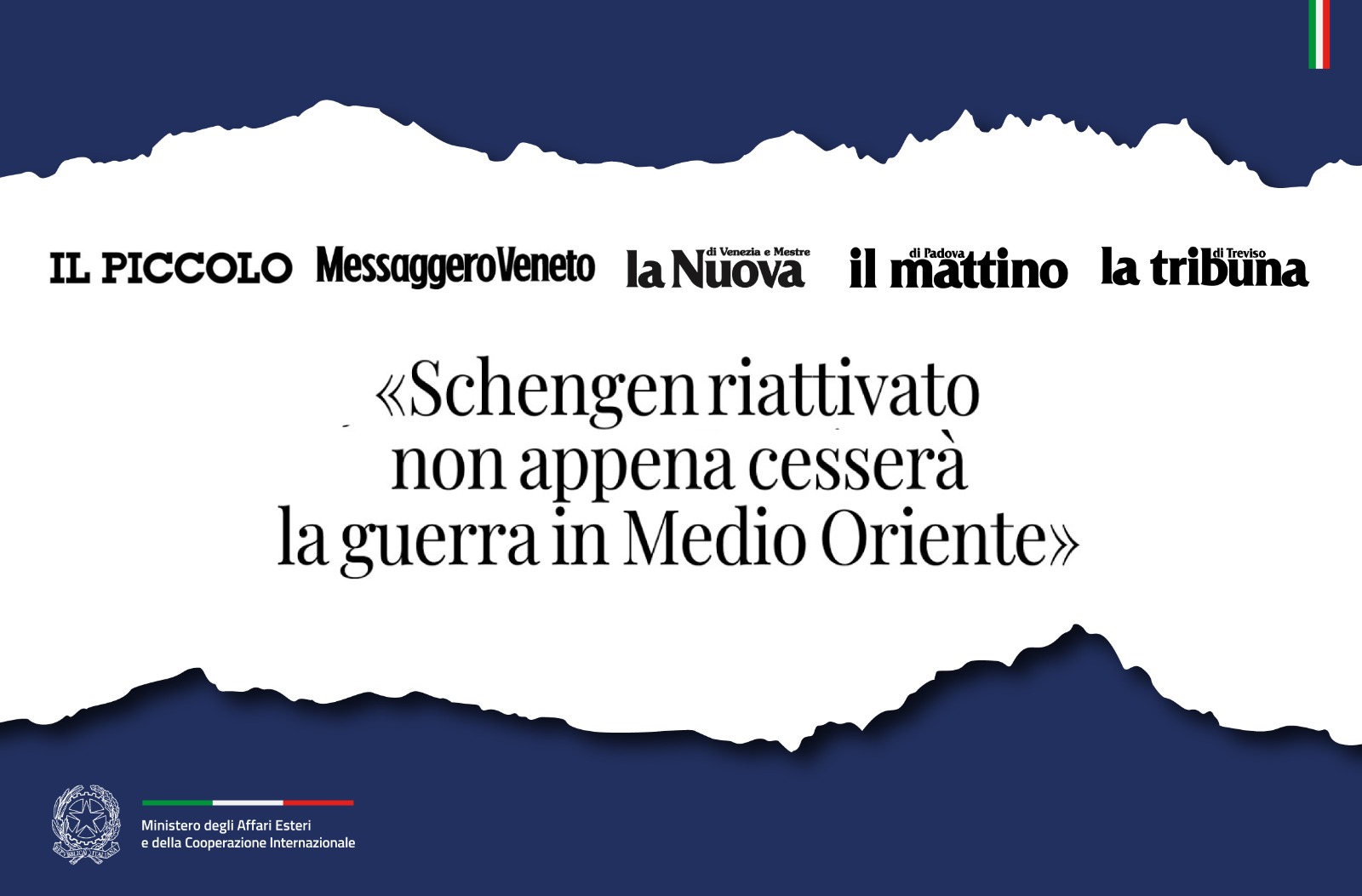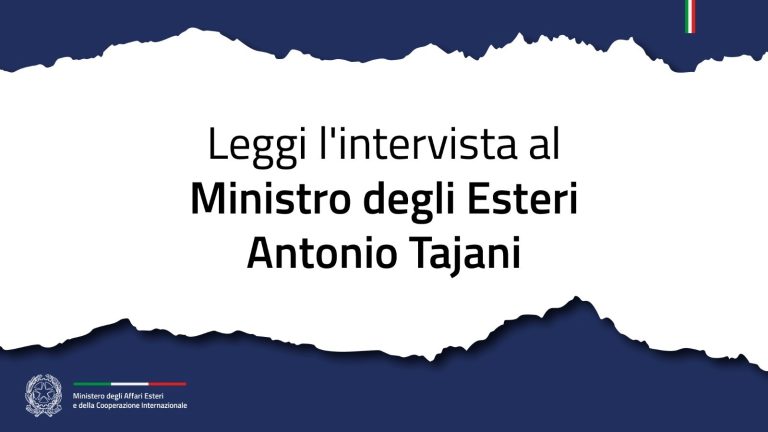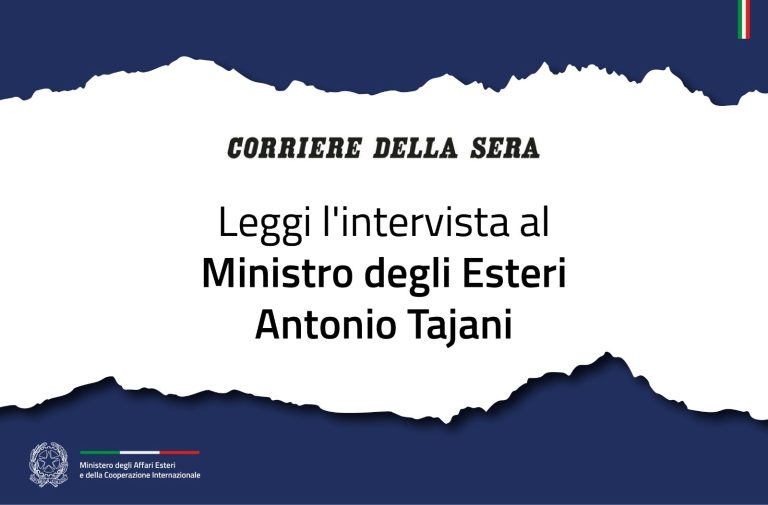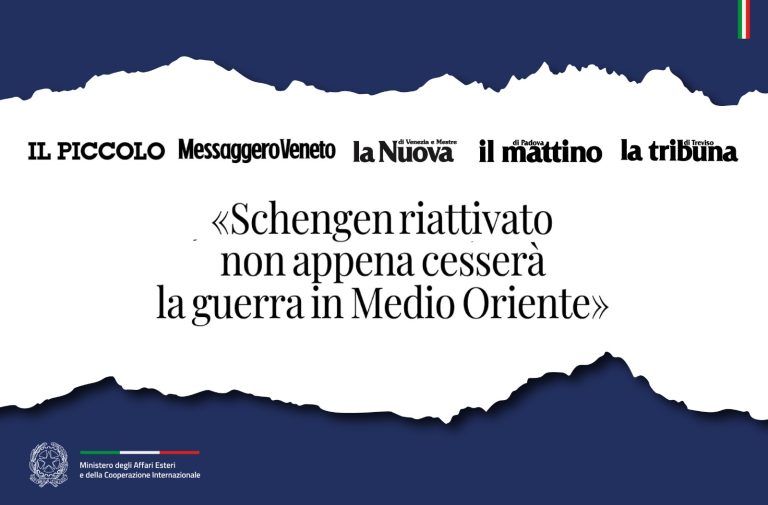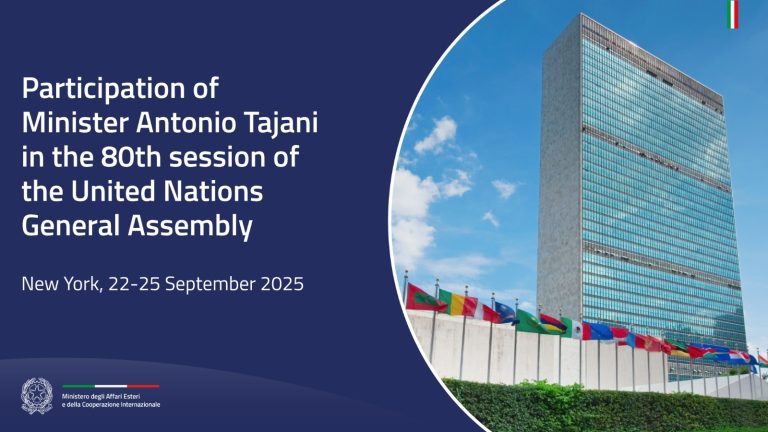“The Balkans must reintegrate into the European family. They are part of Europe, they are part of the West. They are our friends and allies; they must be included in the single market, they are strategic for growth and exports, and we want them to become EU members”. Removing former communist countries from Russia’s malign influence: from the London meeting on relations with Eastern European countries, Minister of Foreign Affairs Antonio Tajani delivers a clear political message. Permanently expanding the EU’s reach to Albania, Bosnia and Herzegovina, Kosovo, Montenegro, Serbia, and North Macedonia “also strengthens security, a crucial front for joint efforts against drug, arms, and human traffickers”.
But as leader of Forza Italia, Tajani is currently in contact with Palazzo Chigi regarding a planned increase in short-term rental taxes, which he wants removed from the budget. Reached by phone in London, he does not avoid discussing the political issues within the majority: from the budget law to the roles of Zaia and Tosi in the next regional government in Veneto.
Minister, is the modified version of the housing tax unacceptable?
“Certain points need amending regarding housing, dividends, and law enforcement, and this will be addressed in Parliament. Regarding banks, the current compromise makes their approach less burdensome, which is important because banks must assist, but they are not the enemy. My main concern is for cooperative and popular banks, which are vital local institutions. I am neither enemy nor friend of the banks: an arrogant attitude damages businesses and deters investors, especially foreign ones. Regarding housing, we will not vote for any additional tax. In the Council of Ministers, neither housing nor dividends were discussed. Housing, in particular, is a central value for families and their economy; we must not be harsh on it”.
On the regional elections, do you think Zaia will continue to play a leading role in Veneto? “I wish Zaia good luck. We have Tosi as the lead candidate, and we expect growth above two digits because there is a strong desire—even among entrepreneurs—for a moderate, Christian, reassuring force. In Veneto, beyond transport, much remains to be done in healthcare, and Tosi would be an excellent councillor”.
Would you oppose Zaia joining the government?
“No, but this would require a reshuffle of ministers. I don’t believe it is feasible; it would trigger too many discussions. Forza Italia must be represented according to its current electoral strength, which has changed following the European and regional elections”.
Looking eastward, when will Schengen be reinstated at the Friuli-Venezia Giulia–Slovenia border? Commuters and businesses are facing significant disruption.
“We are waiting for the war in the Middle East to end. Two years ago, Italy temporarily reinstated border controls with Slovenia. This was an exceptional, targeted measure based on specific national security needs and the management of irregular migration flows. We understand the inconvenience for cross-border commuters, families living along the border, and local businesses. The government’s objective is to restore full Schengen operations as soon as possible, which is one of the Union’s fundamental pillars”.
Regarding ongoing conflicts, the repeated postponement of the Trump-Putin summit suggests that a ceasefire in Ukraine is still far off.
“I hope the US peace plan for Ukraine can accelerate, as the Gaza peace plan did. We support US efforts to bring Putin and Zelensky to the negotiating table. However, on the decisive issue of a ceasefire, Putin has not made concessions to President Trump. The immediate goal must be to reduce escalation: Russian attacks aim to undermine civilian resilience with winter approaching. Any meeting, whether in Budapest or elsewhere, must recognise that a ‘just peace’ includes Ukraine’s territorial integrity. I reiterate: the decision on the future of Ukraine’s territories rests solely with Ukraine. Meanwhile, Italy and Europe must continue to increase pressure on Moscow. This is being implemented through the EU’s 19th sanctions package”.
How long can the truce in Gaza last?
“Much remains to be done for the truce to become a true, lasting peace. Its duration depends on a critical factor: the willingness of the parties—particularly Hamas—to accept mediation and comply with commitments. This includes respecting the ceasefire, releasing hostages still held by Israel, and disarmament. It is also necessary to establish international monitoring and ensure the full functioning of a renewed Palestinian Authority. Without these elements, the truce is fragile. To give Trump’s plan solidity, four components are essential: a clear, credible international mandate for the stabilisation force, which Italy could support; financial and technical assistance for reconstruction; improvement of humanitarian conditions, to which we are contributing; and political dialogue to achieve a two-state solution”.
So Italy is ready to do its part?
“Certainly. Last week, the Mediterranean Dialogues in Naples hosted, for the first time since the ceasefire, both the Israeli and Palestinian foreign ministers. This was an important signal of hope, dialogue, and détente. For our part, with Food for Gaza, we have delivered thousands of tons of humanitarian aid, and we are preparing another shipment, the largest since the beginning of the crisis: 100 tons, collected thanks to contributions from leading entities of the Italian economic system. I have appointed a Special Envoy for the Reconstruction of Gaza, who is currently leading a technical delegation in Ramallah and Amman, involving all relevant State administrations to assess actual needs”.
And why does Europe’s voice not seem prominent on this delicate dossier?
“In the European Union, national states still retain significant control over foreign policy; the EU acts only where full consensus is achievable. Member States have different positions on the Gaza war and recognition of the Palestinian state. However, Brussels has spoken with a strong, coherent voice. The EU was among the first international actors to support the US initiative for the truce and to propose a humanitarian and reconstruction package for Gaza. We are working to ensure that Europe plays a leading role in the peace process, through diplomacy, aid, and security in the Middle East”.

